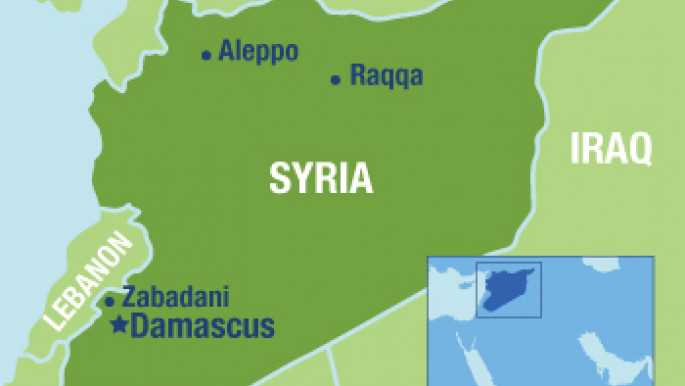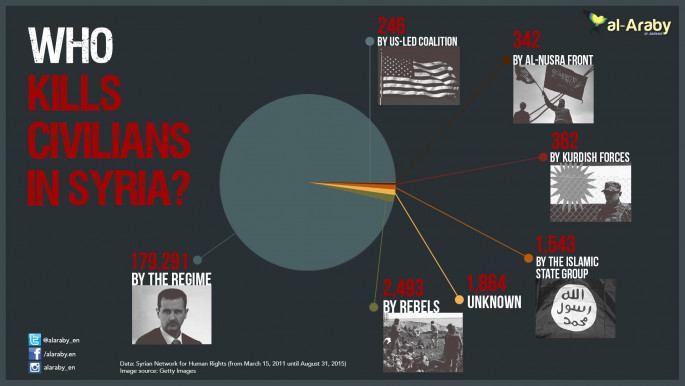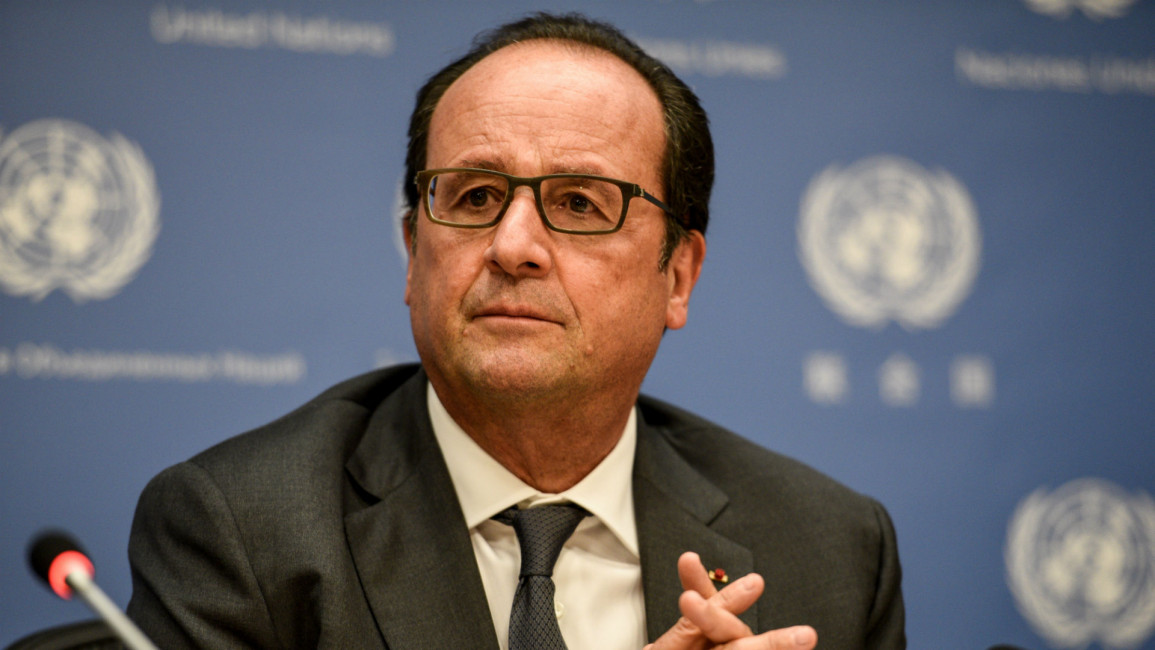
Paris attacks unify counter-terror fronts, but without Syria settlement
The recent attacks in Paris appear to have pushed key regional and international players to unify efforts against the Islamic State group.
In the aftermath of the attacks, France has significantly increased air strikes, the US has provided weapon shipments for groups specifically targeting IS, while Russia and the Syrian regime have been increasingly involved in skirmishes in IS-controlled regions.
Moreover, after the Beirut bombings, the secretary-general of Hizballah, Sayyid Hassan Nasrallah, announced that the Lebanese armed movement would seek to engage IS on new fronts.
On the diplomatic level, this was accompanied by a decision at the G20 summit to increase cooperation with respect to fighting IS. This significantly involved moving away from the contentious question of classifying groups into terrorist and non-terrorist, towards the question of effective military operations against IS.
| This zeal to target IS in military operations, while significant, still fails to provide the conditions necessary for any political settlement |
Yet, this zeal to target IS in military operations, while significant, still fails to provide the conditions necessary for any political settlement.
Convergence in fighting IS
One can begin to see a transition from an earlier moment of dispute over the Syrian crisis towards a short-term unified goal that allots a priority to fight IS. This appears to have also served to revitalise talks of a political settlement in Syria.
But the convergence in strategy with regard to focusing on IS had already begun to slowly develop before last week's attacks. "The New Army of Syria", a group that appears to have been supported by the US, had, for one, already announced its activity as a faction focused on fighting IS.
In addition, last week's events included regime advances in multiple areas of IS influence. Most recently, the Syrian army has managed to rout IS fighters to end the two-year siege of Kuweiris military base, east of Aleppo.
But this transformation was not complete. Before the Paris attacks, battles between opposition factions and the regime had continued, with the opposition succeeding in thwarting regime advances in Hama.
Moreover, Russia continues to be accused of bombing Assad's opponents indiscriminately - instead of focusing on IS.
This deadlock between the regime and opposition groups has slowed progress on a political settlement. Since the beginning of its military campaign, Russia has attempted to take advantage of the momentum initiated by its involvement in addition to the advances the Syrian regime has achieved.
Yet the regime's advance was hindered in certain regions, due to the arrival of a shipment of TOW anti-tank missiles to opposition groups from Saudi Arabia. In addition to slowing the regime's progress, this has also impeded Russia's diplomatic efforts - especially in the Vienna talks.
But the initial obstacles that emerged in earlier Vienna summits appear to have been quickly overshadowed by the Paris attacks. In addition to the military decision to target IS, the political settlement appears to be gaining support, with the aim set to hold elections in Syria within 18 months.
 |
|
Syrian crisis will persist
If this consensus on targeting IS in fact materialises into action, it would seem that corresponding achievements pertaining to a political settlement may be imminent.
But though such a convergence would certainly be positive, it only serves to delay addressing many of the urgent issues that pertain to the Syrian crisis. For instance, no agreement has been reached thus far regarding which political groups should participate in the transitional period.
Whether Assad will be involved or not is still a matter of contention, as several states are still categorically opposed to his involvement in any political settlement.
In addition, the surge in France's military involvement in Syria raises two new issues. First, any discussion of a political settlement becomes more complicated with France moving to the fore and presenting itself as a major player in the Syrian crisis.
Second, the implications of the Paris attacks on France's domestic politics, and in particular on the degree of right-wing influence, remain uncertain. This raises the question of whether "moderate" Islamist groups will continue to be accepted as participants in any settlement talks.
Accordingly, the conditions making any kind of settlement possible remain immature. The Syrian situation, far from being reducible to the IS problem, retains its most problematic element - the question of building a modern state amid the rubble of a civil war that has produced an unbridgeable rupture in the fabric of society.
| The repercussions of the Syrian civil war go far beyond the need to eliminate a fundamentalist Islamist group |
Syrian politics have been reduced to an aggregate of regional and international allegiances, with the US, France, Russia, Turkey, Iran, Saudi Arabia, and Qatar - among others - having acquired significant influence in a range of groups.
This is coupled with Kurdish ambitions to retain control over the autonomous northern regions in Syria, while Erdogan continues to push for establishing a "safe zone" in those regions.
The repercussions of the Syrian civil war go far beyond the need to eliminate a fundamentalist Islamist group.
Instead, it appears that any settlement in Syria may have to follow the Lebanese model, whose disastrous re-application we have already witnessed in Iraq, following the 2003 war.
Though such a model purports to ensure the participation of religious and ethnic minorities in the political process, it instead injects sectarianism into the political system. If Syria does in fact arrive at a similar settlement to that established in Iraq, the end of the civil war will likely produce a transition from a brutal dictatorship to a dysfunctional state incapable of governance.
Syria's woes will persist, only in the form of politics.
Karim Barakat is an instructor of philosophy in the American University of Beirut.
Opinions expressed in this article remain those of the author and do not necessarily represent those of al-Araby al-Jadeed, its editorial board or staff.
 |




